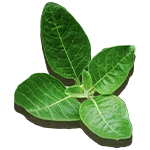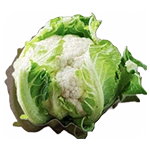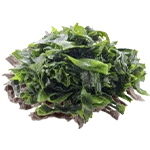🧡 Pre-Order now 🧡
Vitamin K2 is one of the primary forms of vitamin K. Although less well-known, vitamin K2 has recently emerged as a nutritional powerhouse, offering both physical and mental benefits. Most Western diets are deficient in K2. If you are looking for a natural way to strengthen bones, prevent heart disease, and boost brain health, consider supplementing with vitamin K2!
There is increasing evidence that vitamin K2 can help to prevent osteoporosis (bone loss) and bone fractures, especially in the elderly. Vitamin K2 can also help to prevent hardening of the arteries, reducing the risk of coronary artery disease. A 2018 review found that vitamin K2 supplements helped to decrease diabetes risk. In addition, vitamin K2 helps to reduce the effects of inflammation on the body, possibly preventing and/or treating rheumatoid arthritis.

A 2016 study found that rats treated with vitamin K2 showed fewer symptoms of anxiety. Scientists believe that vitamin K2 may help to regulate blood glucose levels associated with anxiety. In addition, vitamin K2 has been found to have anti-inflammatory properties. Anxiety and stress are associated with higher levels of inflammation in the body.

A recent study of North American adults ages 45-79 showed that higher intake of vitamin K2 was associated with lower scores on depression inventories. Another study found that administering vitamin K2 significantly improved symptoms of depression among women with PCOS (polycystic ovary syndrome). There is preliminary evidence that combining vitamin K2 with vitamin D3 can augment its antidepressant effects.
Vitamin K2 is a versatile vitamin that acts in various ways to keep our bodies healthy. It helps deliver calcium to our bones, reducing the risk of bone fractures. Vitamin K2 is also essential to the process by which calcium is removed from our blood vessels, preventing arteriosclerosis and calcification of the arteries. Finally, vitamin K2 prevents cell death in the brain, aids in the creation of lipids that prevent neurodegeneration, and increases myelination, improving neuronal response time.

Vitamin K2 promotes the calcification of bones by activating calcium-binding proteins in the body. Research shows that supplementation with vitamin K2 reduces the bone loss that is often associated with aging. Clinical trials in Japan found that vitamin K2 helped to significantly reduce the incidence of bone fractures in women.
Vitamin K2 maintains calcium homeostasis in the body. Consequently, it can reduce the calcification (hardening) of arteries and heart valves. There is evidence that increasing vitamin K2 intake can reduce the incidence of coronary artery disease and decrease cardiovascular morbidity.
There is increasing evidence that vitamin K2 plays an important role in the maturation of sperm. In addition, research indicates that vitamin K2 is essential for embryo development. Many fertility specialists recommend vitamin K2 for improving both male and female fertility.
Low levels of vitamin K2 have been found to be associated with cognitive dysfunction. Recent research indicates that vitamin K2 prevents brain cell death associated with Alzheimer’s disease. Rats receiving K2 performed better on cognitive and sociability tests. Scientists think that vitamin K2 works by reducing inflammation and increasing the neuroprotective effects of antioxidants and amino acids.
Vitamin K2 plays an important role in helping the body absorb and use calcium. It also helps maintain strong bones, a healthy cardiovascular system, and even reduce inflammation. Vitamin K2 also helps to properly clot the blood and is essential for proper wound healing.
Foods high in Vitamin K2 include:
- Natto
- Cheese
- Egg yolks
- Butter
- Chicken liver
- Salami
- Goose liver pate
- Cured meats
- Fermented soybean products
- Certain types of fish
- Certain types of mushrooms
Symptoms of vitamin K2 deficiency include easy bruising, bleeding gums, nosebleeds, heavy menstrual bleeding, anemia, osteoporosis and tooth decay. In addition, people with vitamin K2 deficiency may have an increased risk of cardiovascular disease, liver disease and diabetes.
Yes, too much vitamin K2 may be harmful. It can cause symptoms such as nausea, vomiting, diarrhea, stomach pain and jaundice. High doses of vitamin K2 can also affect the effectiveness of anticoagulants such as warfarin and increase the risk of bleeding.

Ashwagandha should be an essential part of your daily routine for many reasons. It is a powerful adaptogen, meaning it helps the body better deal with stress. It has also been shown to improve cognitive function and increase brain health. Ashwagandha is also known for its anti-inflammatory and immune-boosting properties.

Bacopa Monnieri is a plant native to India. The plant is known for its cognitive enhancing effects. The plant extract has been shown to improve memory, attention and learning in various studies. Bacopa Monnieri is also thought to have anti-anxiety and antidepressant effects. In various studies, it has been shown that the plant extract reduces stress and improves mood.

Citicoline is a powerful nootropic that has a variety of benefits for cognitive function and brain health. It has been shown to improve memory, attention and concentration, as well as to reduce stress and anxiety. Citicoline also has neuroprotective effects and has been shown to reduce the risk of cognitive decline and Alzheimer's disease.

CoQ10 is a powerful antioxidant that can help protect cells from damage. It also plays an important role in energy production and can help improve stamina and endurance. CoQ10 has been shown to be effective in treating a variety of diseases, including heart disease, cancer and diabetes.

Vitamin D3 is a nutrient vital for human health. It is necessary for the absorption of calcium and phosphorus, and helps maintain bone density. Vitamin D3 also supports the immune system and helps regulate cell growth.

Vitamin K2 is a nutrient that is important for bone and heart health. It helps to prevent bone loss and osteoporosis, and also helps to keep arteries clear and prevent heart disease.

Ashwagandha should be an essential part of your daily routine for many reasons. It is a powerful adaptogen, meaning it helps the body better deal with stress. It has also been shown to improve cognitive function and increase brain health. Ashwagandha is also known for its anti-inflammatory and immune-boosting properties.

Bacopa Monnieri is a plant native to India. The plant is known for its cognitive enhancing effects. The plant extract has been shown to improve memory, attention and learning in various studies. Bacopa Monnieri is also thought to have anti-anxiety and antidepressant effects. In various studies, it has been shown that the plant extract reduces stress and improves mood.

Citicoline is a powerful nootropic that has a variety of benefits for cognitive function and brain health. It has been shown to improve memory, attention and concentration, as well as to reduce stress and anxiety. Citicoline also has neuroprotective effects and has been shown to reduce the risk of cognitive decline and Alzheimer's disease.

CoQ10 is a powerful antioxidant that can help protect cells from damage. It also plays an important role in energy production and can help improve stamina and endurance. CoQ10 has been shown to be effective in treating a variety of diseases, including heart disease, cancer and diabetes.

Vitamin D3 is a nutrient vital for human health. It is necessary for the absorption of calcium and phosphorus, and helps maintain bone density. Vitamin D3 also supports the immune system and helps regulate cell growth.

Vitamin K2 is a nutrient that is important for bone and heart health. It helps to prevent bone loss and osteoporosis, and also helps to keep arteries clear and prevent heart disease.